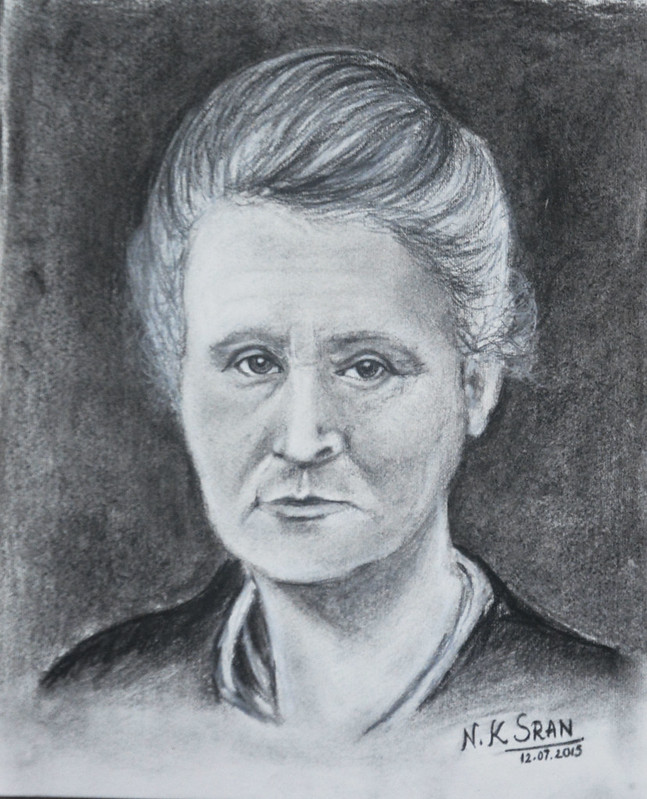Perhaps you’re conversant with this situation already. You’ve (eventually) completed university; you have been expecting for life to accomplish this. The only thing you wish for is to begin working, make money, and relish spare time taken by study – time intended to put into chasing your cherished hobbies.
However, then what occurs? Over and over again you become trapped at the office; you think it is irrelevant and you are bored. Every free instant finds you fantasizing about being in a tropical place. You don’t have time for relaxation or enjoyment. You imagine gray hairs beginning to grow rapidly.
Getting a satisfying occupation isn’t simple. Nowadays, it’s not just about fending for yourself as well as your family. Occupation is way beyond this. That is related to getting that work that satisfies you. Throughout this book chapter, the author describes the idea of a satisfying occupation, and, perhaps, more significantly, presents various stages you may utilize to get and accomplish it.

Chapter 1 – We’re not satisfied at the times our hopes regarding our occupation are not fulfilled.
Are you aware that a minimum of 50% of employees around the West part of the world is not happy with their work? A survey done in Europe even proposes that if individuals could choose to start afresh, 60% would select a different profession. However, how do they become dissatisfied?
The unhappiness we experience at work usually arises from the reality that our hopes are bigger than before. Contemporary employees don’t only chase a decent salary– they want their work to add meaning to their life.
But, this wasn’t usually the situation. People were formerly pleased with possessing a place to stay and sustenance in the fridge. However, now that the majority of us, around the West, is somewhat rich and can afford our essential requirements, we’re searching for bigger than only good pay.
Therefore, although you would most likely feel bad working hard on a shop floor, your forefathers would most likely be okay and thankful to afford their bills.
These days, we’re pursuing a sense of aim and would like to chase our individual dreams, values, as well as gifts. Essentially, we would like our work to be satisfying.

What, then, do we have to do? You may reduce your expectations (people in support of this strategy explain that occupation has usually been tiresome and is not fun, and hence, we have to reduce our hopes and search for external satisfaction than our occupations) or you may be part of the people who believe that getting a fulfilling job is likely if maybe difficult.
The last strategy motivated you to chase your dreams, rather than being sorry that you did not attempt to be independent of the bondages of the unsatisfied work.
It’s somewhat clear that we will currently move on with the last approach! However, before we understand precisely the things that make a career satisfying, let’s attempt to better know the reason why a sensible occupation may be really hard to see.
Chapter 2 – In this present environment, we have an enormous amount of occupation options.
In this present world, a lot of us experience a calamity of indecision and hesitation when attempting to pick a profession. At the basis of our confusion lies the reality that we have basically a lot of paths to decide from.
That kind of an enormous selection of choices has not been observed in history; hence, we’re really not equipped to deal with it. In the past few decades, there basically weren’t a lot of career options to face.
Think of the teenager Benjamin Franklin. While he was twelve years old, he was exhausted from being a chandler; hence, his father chose to assist him to get another occupation. These two had a walk and noticed various workers working, like craftspeople and builders. They went to a printing office, a place where teenager Benjamin’s dad chose his son, a habitual booklover, should choose the profession. Hence, Benjamin became a typesetter for the following 9 annum.

If just things would be that still really easy. Nowadays, when you go to an occupation finder site, like careerplanner.com, you’ll see about 12,000 various careers. Barely a number to go through, let alone pick from!
Ironically, we are not grateful for this excess of options, just because we cannot emotionally handle an enormous number of selections.
Barry Schwartz, a psychologist said in the book he wrote that the repercussion of facing a lot of choices is, not a sense of gladness and freedom; however, a kind of an incapacity to do something.
Also, even though we actually make a choice, we usually still feel unfulfilled. Why? The reason is that, although we have decided, the rejected choices remain unconsciously. Is that actually the correct career to pursue? Are we making a very bad error? Hence, we’re troubled by the likelihood that our option was the incorrect one.
Chapter 3 – It’s not an easy thing to abandon the career we’re readily on – on the other hand, if you do not have fulfillment, change it!
At times it’s not being overwhelmed with the option that’s the issue; however, feeling stuck in a certain job. In those kinds of instances, transformation is something that is hard. We usually feel trapped since we’ve used a lot of energy and time on training that gave us a specific occupation – an occupation that we’re not satisfied with now. Therefore, what can we perform?
There is a significant force that makes us stuck in unsatisfying occupations: those first choices that directed us to a certain career path. Due to that, we sense a limitation from our previous training.
The issue is we were told to decide on a career really early. The way to a high school student to understand the actual occupation that fits her wants and gifts?

The majority of people have experienced it: through the end of our teenage years, our parents mentioned that we should study medicine or law. However, as you got older, you found out further about yourself, raised and transformed, and when you got to the age of twenty, you realized that you would instead go after something that is entirely different, such as psychology or music.
However, as soon as you begin a career, it is really difficult to abandon it. Those times, the money given for training!
Wishing to change your career, you need to alter your mentality and defeat this psychological obstacle. Consider it a choice between two kinds of sorrow: you will either be upset about the career you put a lot of it, or you will be upset about not having the courage to leave and search for a more satisfying tomorrow.
Maybe this will assist you to decide: psychology studies have revealed that being upset about not acting for significant things is a scarring emotion you can ever feel. Deciding on a career shift has been the means forward.
Chapter 4 – Money, as well as status, aren’t as satisfying as we assume.
Therefore, the key elements that constitute a career satisfying? The outdated, knee-jerk reply is “wallet and rank.” However, is that truly correct?
Definitely, the bills have to be compensated with something; however, money, a means to increase happiness, is not really effective. As a matter of fact, numerous social science research has revealed no association between being rich and happy.
Although proof reveals that money adds to our wellness to a specific point – the fulfillment of essential requirements – it offers but small fulfillment as soon as you make it above that end. That is a result of a psychological structure: “hedonic treadmill”: buying some new things, such as a large TV, and immediately getting used to and bored. This brings about greater hopes, and we wish that the next item, such as a larger, greater screen, would bring fulfillment. Hence, we get engrossed in an endless cycle of desiring – whereby we cannot reach happiness.

Therefore, financial matters are not the solution. However, what of social ranking or credit from other people? It’s correct that all of us like to be recognized; but, the path to a higher status is strewn with consequences as well.
We restrict ourselves and just do things to impress others. We evaluate ourselves with the evaluations of other people, rather than going after the things we desire.
Another consequence is that as soon as we’ve gotten to some status – for instance, being promoted,– there will always be a more esteemed status above us. Hence, we desire the further status, and the higher one following that until we once again find ourselves trapped on a limitless, unsatisfactory treadmill of desiring a thing we do not possess.
Hence, if it’s not finance and ranking that brings fulfillment – what does then?
Chapter 5 – Distinction offers you a feeling of significance, although it is not simple to mix with the business.
There are various vital components that constitute a satisfying occupation. A component is the feeling that your job has significance. Meaning, your work gives you a sense of adding to the environment in a favorable manner.
At times teenage pupils are inquired about the things they imagine for their future work, they’ll usually reply with, “Having a difference.” However, what does this phrase mean and the way to achieve this?
We have a tendency to consider our occupations as more satisfying when we sense that we’re adding significantly to a thing that helps our planet as well as other people. When given that kind of chance, our individual satisfaction improves as well. A study that was conducted on moral jobs reveals that individuals who consider their occupation as “a job of a specialist standard that contributes to the larger community” also end up meaningfully greater job satisfaction.
However, people wishing to join morality and commerce usually have a problem; ethics and business look irreconcilable. But, these 2 aspects are not incompatible.

For instance, consider Anita Roddick, Body Shop’s creator. She talked about this company as “a skin and hair corporation that functions for favorable societal transformation.” From the onset, she could mix business and morality: she showed pictures of people that are missing on the company trucks, started a publication sold by indigent people, and initiated fair trade, purchasing ingredients from local societies in Brazil.
It was not an easy task; however, Anita Roddick has been a piece of evidence that mixing your moral opinions related to your company might not be as hard as you believe, either.
Chapter 6 – Going after what you love and discovering your flow activities would allow you to be happy.
While talking about your professional opinions with family and peers, you’ve most likely been told to “go for the things you love.” Even though this is encouraging, this piece of advice is very easy to say but very difficult to stick to. Since the inquiry is about the things you like to do.
For you to know what you love doing, set apart time to think about what is your flow activity.
Flow is a condition of complete concentration and close attention where you’re really engrossed in a task that you think of any other thing. Doing the thing you love is frequently related to this sense.
There exist various means to feel the flow, regarding your personal mixture of gifts and passions. For instance, it could be doing a surgical operation, doing yoga, playing piano, programming, public speaking, or constructing things. Fascinatingly, surgeons who need complete focus when doing hard operations usually state that they do not feel how time has passed or sensed that it moves faster than normal.

There’s overwhelming proof that the feeling of flow is vital to fulfillment in career and life since it offers us a satisfying feeling of fulfilling our potential.
Therefore, if you’re trapped in an occupation where you do not experience any flow, think of looking for another job that actually gives you this feeling. There are two means for getting this work:
Firstly, attempt scholarly inquiry. This basically entails asking various individuals regarding their occupation. Do not be really comprehensive; ask precisely whether they could have flow with their work.
Secondly, you could notice flow moments by having a log for flow. Did you feel that paragraph was fascinating and fulfilling to write? Perhaps, did you experience more flow that holiday while making food for your visitors?
Chapter 7 – Desiring a satisfying occupation, you have to search for freedom.
This is the reason why the majority of the people are angry with their present job: they get to their houses late, without strength remaining to do the thing they truly want to do, and the day after is yet another similar twenty-four hours. If you relate to this, you’re definitely not the only one. The majority of people feel stuck in some terrible jobs.
A vital component verified for occupation fulfillment is possessing an “autonomy span”, meaning, at times where you’re free to choices on your own. The more liberty you get, the more satisfied you would be.
Hence, the thing to do? While talking about jobs, there exist two various means to improve freedom and autonomy.
Firstly, you may employ yourself, obviously, it has both advantages and disadvantages.
One of the advantages of self-employment is that such people have a better opportunity for a sense of fulfillment than the people who are wallowing in normal occupations. In research that was conducted by the Work Foundation in the UK, 47% of people who employed themselves mentioned being “very satisfied”; whereas, just 17% of people who worked for others stated high satisfaction.

However, definitely, there are disadvantages as well. Self-employment actually comes with monetary risks and extra work time anytime during the week; they cannot have standard vacation or illness payment or advancement in status.
Another method is to look for freedom beyond the workplace by putting less effort.
Attempt to work 4 days every week rather than 5. You might make use of the spare day to concentrate on the things you truly like or to use it for your family.
Financially, sparing less time for work may look unrealistic; however, when you aim to reduce the excess on your costs, using less money and time for anything you don’t truly require, you won’t have to put effort as much while having more to feel fulfillment in life.
Chapter 8 – The initial and second stages to discovering satisfying occupations are to defeat your anxiety and limit your options.
Currently, you understand what entails a job to be satisfying, let’s move to the aspect that a lot of us actually appear to grapple with –really discovering satisfying occupations.
The initial difficulty is defeating the anxiety that comes together with the notion of a big career shift. But, if you completely know the mindset behind this anxiety, you could overcome it.
The meaning of this anxiety? Our mental thought of risk is one answer to this. Psychologists have discovered that it’s fixed in human nature to be anxious about losing twice we want to gain. Hence, we naturally detest taking a risk and are prone to concentrate further on the unfavorable effects than the favorable effects.
Hence, instead of feeling restricted by risk, allowing fear to control your life, bear in mind that you’re most likely focusing overly on the unfavorable views. Attempt to the risk notwithstanding!

The next thing to do is to think about the type of job you’d like. There exist 3 phases that can assist you to accomplish this:
Firstly, think about your professional life until now. Think about experiences and abilities you have achieved and gained. What inspired you to get those?
The 2nd thing to do is a direct yet strong thought experiment. Visualization could lead to five various lives in 5 various parallel worlds; in every universe, you are completely allowed to chase any kind of career you desire. What type of occupations would you decide to go through? Can you possibly do those jobs in this world as well?
Thirdly, ask individuals around you about the kind of job they believe you’d do well. At times, people that surround us could be better observers than us. Make sure you ask for real answers. For instance, “assisting street children in Brazil” is very more beneficial than “a thing related to children.”
Chapter 9 – For getting a satisfying occupation, you have to abort rigorous planning, start trying it out.
The majority of career advisors advise you to schedule your professional life before you carry it out. There’s an issue with this method, but: it barely ever functions.
A really more effective method is using the mantra “moving initially and mirror afterward” – which means that is greater to attempt numerous occupations than to waste time looking for the best available anywhere.
Current research has revealed that large transformation is greatest realized by “learning by experiencing.” Think of Bouchet. She got angry about not getting a satisfying occupation during her late 20s. Because her professional life advisor was at a drop as well, Laura decided to do a test: she attempted 30 various jobs in one year to find which one would be best appropriate for her. She asked individuals who she believed had satisfying occupations and inquired whether she might pursue their path, eventually trying anything from fashion pictures to the Parliament of Europe.
The “revolutionary sabbatical” of Laura gives complete freedom to toy with various occupations, either by observing individuals or by being a volunteer. However, if you cannot do this, you can do other things.

The “temporary assignment” is a less revolutionary strategy. For instance, if you’re suffering in your present occupation and going with the opinion of turning into a yogi, you might attempt doing this at the end of the week. If you discover that this job is as beneficial as you’d expected, you can slowly raise your effort and ultimately leave the suffocating occupation you never actually liked.
Lastly, there is “scholarly inquiry”. It’s easy; however, really effective: discuss with individuals about whose occupations you’re curious about. Tell them to explain their day-day work in-depth and comprehend if you might imagine yourself doing that.
Chapter 10 – There exist different means to turn both your professional life as well as your social life into a satisfying one.
While talking about social and professional lives, the majority of us would like to own everything: we would like the benefits of significant occupation and of committed parenthood and partnership. However, is this achievable and, if it is, the way to achieve it?
Begin by reconsidering the tasks historically associated with males and females; if you have not, you have to begin seeing mothers and fathers as identical spouses.
The past several ten years was rampant with freedom, and still, it’s usually believed that females would do the majority of chores and baby care. Hence, it is usually females, not males, who quit or adjust their professional lives.
Mothers and fathers have to endeavor to share the work equally and back each other up, rather than having the mother the only juggler of family and professional lives.
Likewise, it is beneficial to substitute between career and family, rather than attempting to do well at both at the same time. Firstly, attempt to be a parent full-time; later, focus only on professional life.

With a baby coming, one parent – frequently the mom – cuts her profession to work part-time, which is regarded as the means a family can “own anything.” Rather, those kinds of families are usually able to gain neither the advantages of the occupation nor the family life, since they cannot completely concentrate on anything. They are not able to flourish with a part-time occupation and they cannot totally commit to their kids.
Lastly, take another view of being mother and father. This may bring your professional life down that you wouldn’t have imagined before. A Canadian dad living alone called Brian Campbell who has four boys quit his academic profession to turn into a dad full-time. Zealous about connecting his children with nature, Campbell began keeping bees. So, he eventually had a little bee farm, additionally to hives around their town, and started teaching lectures about beekeeping in cities.
Chapter 11 – Have your time: vocation can’t be discovered overnight – it gradually develops in you.
We’ve learned almost everything about looking for fulfilling work; however, there has been a last, significant component – your vocation.
What is the reason why vocation is really serious? Vocation is a thing that offers aim to your occupation. It is a bigger aim you’re chasing, something that makes you leave your bed daily.
For instance, if you’re a medicine scholar, your aim could be to look for curing lung cancer. For instance, you’re an activist for the environment, your goal could be having cities thrive with minimized carbon. If you’re an author, you could target writing the best novel after Joyce’s Ulysses.
However, although vocation adds meaning to your life, it’s difficult to raise. This reason is that we hold specific basically wrong thoughts regarding the reality of vocations.
The majority of the people assume that there exists a perfect work lying out, and that would show itself rapidly like the lightning of inspiration. Maybe they needed to look for a long time and it was hard to see it. However, this isn’t the case.

You won’t abruptly get the excellent vocation; rather, it grows within you, gradually rising as the continuous occupation cultivates it.
Think of Marie Curie. Relocating to France while being 24 years old, broke, with just her gift to back her up, she began her studies in medicine; she afterward changed to physics and chemistry. She was completely committed to her endeavor and used more than twelve hours around her lab daily, living on just butter and bread for several months continuously. Then, she changed her research into uranium beams. As she got further interested in those, her vocation grew until she knew she would like to commit her whole time to find the unknowns of radiation. Curie eventually accomplished this, around 1903, she was the initial female ever to acquire the Nobel Prize.
This actually pays not requesting your vocation to be discovered to you instantly. Rather, let it develop by experience.
How to Find Fulfilling Work by Roman Krznaric Book Review
During times of difficulty and options, a good salary and social ranking are not good enough anymore. We wish for our occupation to be meaningful, significant, and full of flow and independence. To find precisely that, we have to abandon meticulous planning, attempt things, take risks while getting lessons from past instances.
Write down an occupation announcement to employ yourself.
First step: Visualize that you need to publish yourself in the news. Explain your abilities, passions and gifts, and your least hopes from an occupation. Do not be too precise and don’t say a specific occupation you are willing to.
Second step: Send the job advertisement you have written to ten individuals you are familiar with. Ensure that all these individuals possess diverse experiences – send the advertisement to a policeman and an animator. Afterward, question those ten individuals to propose 3 occupations that they believe would fit you best.
